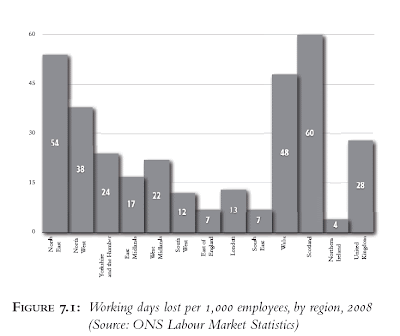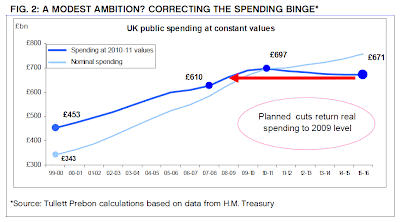This could soon be you
One of Tyler's favourite financial market memoirs is Frank Partnoy's FIASCO, his account of life as a Morgan Stanley derivatives salesman during the 1990s:
"The derivatives group received its marching orders from the firm's leader, John Mack. Following Mack's lead, my ingenious bosses became feral multimillionaires: half geek, half wolf. When they weren't performing complex computer calculations, they were screaming about how they were going to "rip someone's face off” or "blow someone up.” Outside of work they honed their killer instincts at private skeet-shooting clubs, on safaris and dove hunts in Africa and South America, and at the most important and appropriately named competitive event at Morgan Stanley: the Fixed Income Annual Sporting Clays Outing, F.I.A.S.C.O. for short. This annual skeet-shoot tournament set the mood for the firm's barbarous approach to its clients' increasing derivatives losses. After April 1994, when these losses began to increase, John Mack's instructions were clear: "there's blood in the water. Lets go kill someone.” We were prepared to kill someone, and we did. The battlefields of the derivatives world are littered with our victims." (and see here for a longer excerpt)Marvellous. The raw beating heart of capitalism - the very thing that's driven economic progress for at least the last three centuries. And thank God for it (terms and conditions apply - like staying within the criminal law).
There's just one thing - don't ask me to pay for any losses these dove hunters incur when they accidentally blow their own heads off.
Which brings us back to the key question of HTF can we let busted banks go bust without destroying Mom and Pop's savings and wrecking the economy?
Because two years on from the Crash, and despite all the brave talk, our politicos and regulators have still not agreed how to do it. There's been no serious discussion of the obvious step - splitting the high street "utility" banks from the casino banks down on the Wharf (aka a new Glass-Steagall - eg see this blog). Instead, energy is wasted on chasing headlines over bankers' bonuses and bank levies.
This morning Liam Halligan has another excellent article on real bank reform, highlighting a speech made this week by Bank of England Governor King:
"King has now gone as far as he can in calling for the committee to recommend a radical bank split, without publicly ordering them to do so.Hear hear.
"In the end, clarity about the regulatory perimeter is both desirable and unavoidable," said the Governor of the Bank. "Radical solutions offer the hope of avoiding the seemingly inevitable drift to ever more complex and costly regulation."
According to King, City big-wigs are now making "dubious claims to resist reforms that might limit the public subsidies they have enjoyed in the past".
The Governor is taking on one of the world's most powerful lobbies. Among those at the top table, he is doing it almost alone. That's why the rest of us need to get squarely behind him."
As we've blogged many times, we urgently need to break up the banks. They should not be allowed to exploit the unavoidable taxpayer guarantee on high street deposits in order to raise cheap funding for playing the tables. And as we saw all too clearly in the Crash, our regulators are simply not smart enough to manage institutions that cover both high street and casino activities. Splitting is the only serious option.
But among those City big-wigs, there's hardly an acknowledgement the issue even exists. Indeed, when at the recent Tory Conference Tyler put the question to a City panel chaired by FT editor Lionel Barber, Barber immediately moved on to the next question. Nobody on the panel (including Treasury minister Mark Hoban) was even prepared to acknowledge the question, let alone attempt an answer. Pathetic and worrying.
So let's remember precisely what's going on.
The losses of the banks have been passed on to us taxpayers. We are now holding the baby, courtesy of effective bank nationalisations and continuing blanket guarantees covering all banks. At the same time the printing press has been slammed into overdrive, driving interest rates for savers down close to zero, and well below the inflation rate. The banks are being encouraged to fund their losses and recapitalise themselves by ripping the face off savers.
And on the subject of inflation, we are all quite aware that UK inflation continues to run well above the supposed 2% target - RPI inflation is up at nearly 5% pa, and even the government's preferred (and sytematically lower) CPI measure is over 3%. But do we all understand how bad the international picture looks?
Commodity prices in dollar terms are up 50% from the post-Crash lows, and still increasing:
And things have got even worse since September (the last month shown in the IMF chart). According to the Economist Index, dollar prices have risen by a further 8%, taking the 12 month increase to 31%.
Deflation it ain't, and in sterling terms the picture is even more alarming. The Economist says sterling commodity prices have risen by 35% just in the last year.
Against that background, the US Treasury was last week able to sell a bunch of its index-linked bonds (TIPS) for an extraordinarily high price. For the first time ever, it was able to issue these bonds on terms that guarantee their holders will lose money in real inflation adjusted terms.
Why would anyone buy such things? Because they're scared stiff about future inflation and would rather lock in a known modest loss now than take a chance on a much bigger inflation loss later on bonds that are not index-linked. Yes, my friends, out there across the Atlantic the inflation storm clouds are gathering.
So what to do? How can you make sure it's not your own sweet face that gets ripped off in the coming hurricane?
To be frank, there's not necessarily a lot you can do. One way or another we in Britain have to accept a permanent cut in our consumption to work off all that debt we've built up. In the process - whether through higher inflation, higher taxes, or job losses - an awful lot of faces are going to get ripped.
The one thing we can do is make sure we don't allow our politicos to wriggle out of the difficult decisions needed to stop the same problem arising again somewhere down the road. Which is why we should do what Liam H suggests - back Merv as he pushes to break up our dangerous too-big-to-fail megabanks.































